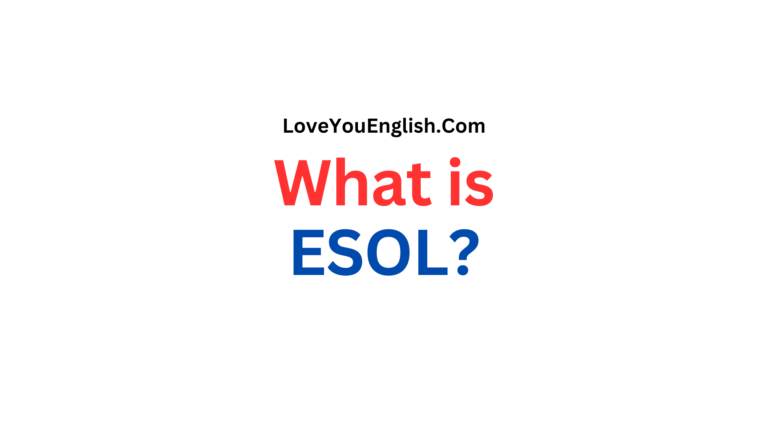English Speaking European Countries
English Speaking European Countries
Hello everyone,
In today’s lesson we’re about to take an easy tour through the European continent, shining a spotlight on those countries where English isn’t just a foreign language – it’s a rockstar.
From charming accents to bustling language scenes, let’s dive into the European countries where English stands out, making travelers and language enthusiasts feel right at home.
United Kingdom
Let’s kick things off with the obvious – the United Kingdom. England, Scotland, Wales, and Northern Ireland collectively form a linguistic playground where English isn’t just spoken; it’s performed with flair.
From the posh tones of London to the melodic lilt of Scotland, the UK is a symphony of accents.
But it’s not just about the accents; it’s the banter that makes English in the UK a unique experience.
British humor, dry wit, and the art of understatement create a linguistic landscape that’s as diverse as the rolling hills of the countryside.
So, whether you’re sipping tea in a London pub or wandering the cobbled streets of Edinburgh, English in the UK is a cultural experience in itself.
Ireland
Now, let’s hop across the Irish Sea to the Emerald Isle. Ireland, with its poetic landscapes and friendly locals, adds a leprechaun twist to the English language.
The Irish brogue, with its lilting cadence, turns even mundane conversations into a lyrical performance.
In Ireland, English isn’t just a means of communication; it’s a storytelling tool.
Whether you’re in a cozy Dublin pub or traversing the scenic Cliffs of Moher, the Irish penchant for narrative and their love of a good yarn make English in Ireland a delightful experience.
And hey, if you catch a bit of the Irish lingo – the craic, the grand, and the notions – consider yourself initiated into the linguistic charm of the island.
Malta
Now, let’s set our sights on a tiny Mediterranean gem – Malta. Nestled between Italy and North Africa, Malta is a linguistic melting pot where English takes center stage.
A former British colony, Malta retained English as one of its official languages, blending it seamlessly with Maltese, a language with Arabic roots.
In Malta, you can explore ancient temples, relax on stunning beaches, and order a pastizzi – all while effortlessly switching between English and Maltese.
The Maltese people, known for their hospitality, add a warm Mediterranean touch to the English language experience.
So, if you find yourself saying “hello” and “bonġu” in the same sentence, you’re soaking up the linguistic vibes of Malta.
Netherlands
Now, let’s venture north to the land of tulips, windmills, and bicycles – the Netherlands. In this flat and fabulously organized country, English has quietly slipped into the linguistic repertoire of the Dutch.
From the canals of Amsterdam to the tulip fields in Keukenhof, you’ll find that many Dutchies speak English fluently.
The Dutch, known for their pragmatism, embrace English as a second language without batting an eyelash.
Signs, menus, and conversations often seamlessly switch between Dutch and English.
So, if you’re strolling through a Dutch city and someone offers you directions in flawless English, don’t be surprised – you’ve just witnessed the Dutch linguistic prowess.
Sweden
Up in the Scandinavian coolness, Sweden emerges as a linguistic wonderland where English is not just understood; it’s embraced.
Swedes, known for their proficiency in English, effortlessly switch between their native tongue and the global lingua franca.
In Sweden, you can explore the vibrant streets of Stockholm, savor a fika (coffee break) in Gothenburg, and engage in deep conversations about ABBA – all in English.
The Swedes’ dedication to language education and their open-mindedness make English an integral part of daily life.
So, if you’re in Sweden and someone greets you with a friendly “hej” followed by a flawless English sentence, you’re in the midst of a Swedish language rendezvous.
More cool topics:
- Spoken English Conversations at A School
- English Conversations About Lifelong Learning
- Spoken English Conversations at A Farm
- Spoken English Conversations on An Airplane
- English Conversations About Favorite Childhood Memories
Denmark
Next door to Sweden, we find Denmark, a haven of hygge and English proficiency. Danes, known for their cozy lifestyle and bicycle-friendly cities, also excel in the art of speaking English.
English signs, English-speaking locals – Denmark seamlessly integrates English into its cultural fabric.
Whether you’re wandering through the enchanting streets of Copenhagen, exploring the fairy-tale-like castles, or indulging in a Danish pastry, you’ll find that English is right there, ready to make your experience comfortable.
Danish hospitality, combined with their proficiency in English, turns Denmark into a welcoming destination for language enthusiasts and travelers alike.
Norway
Now, let’s sail across the breathtaking fjords to Norway, where the natural beauty is matched only by the locals’ proficiency in English. Norwegians, known for their love of the outdoors and stunning landscapes, also happen to be excellent English speakers.
In Norway, you can embark on a mesmerizing Northern Lights adventure, hike through the scenic Norwegian wilderness, and have meaningful conversations with locals – all in English.
Norwegians’ dedication to language education and their global outlook contribute to making English a comfortable and familiar companion for travelers exploring this Nordic paradise.
Finland
Let’s head to Finland, the land of a thousand lakes, saunas, and a bilingual population. While Finnish is the official language, English has carved out its space in the linguistic landscape of this Nordic country.
Finns, renowned for their education system, are often fluent English speakers.
In Finland, you can enjoy the tranquility of the lakes, experience the unique thrill of ice swimming, and engage in conversations with locals – often seamlessly switching between Finnish and English.
Finland’s commitment to bilingualism and the prevalence of English in various aspects of life make it a destination where language barriers are blissfully absent.
Belgium
Now, let’s step into the heart of Europe – Belgium, a country with a rich tapestry of languages.
Divided into Dutch-speaking Flanders, French-speaking Wallonia, and bilingual Brussels, Belgium is a linguistic crossroads where English finds its place effortlessly.
In Belgium, you can savor chocolate in Brussels, explore medieval towns in Flanders, and indulge in French culinary delights in Wallonia – all while comfortably navigating in English.
The Belgian commitment to multilingualism, along with the cosmopolitan nature of cities like Brussels, creates an environment where English feels right at home.
Luxembourg
Our linguistic journey concludes in the small but mighty Luxembourg. Nestled between Belgium, France, and Germany, Luxembourg is a multilingual marvel where English joins the linguistic ensemble.
With Luxembourgish, French, and German as official languages, English adds an elegant touch to the linguistic diversity.
In Luxembourg, you can stroll through the charming Old Town, explore medieval castles, and engage in conversations with locals – often effortlessly transitioning between languages, including English.
The Grand Duchy’s international character and its status as a financial hub make English a language of business and everyday communication.
Conclusion: English, the European Chameleon
So, there you have it – a casual stroll through European countries where English not only coexists but thrives.
From the banter of the UK to the bilingual elegance of Luxembourg, English proves itself as a chameleon, effortlessly adapting to the linguistic landscapes of diverse cultures.
Whether you’re a language enthusiast seeking new linguistic adventures or a traveler navigating the charming streets of European cities, English is your trusty sidekick.
So, revel in the linguistic diversity, engage in conversations, and let English be your passport to the heart of Europe. Happy travels, language lovers!
Frequently Asked Questions (FAQs) about European Countries Where English Stands Out:
1. Do people in European countries generally speak English?
English proficiency varies across European countries, but in many places, especially urban areas and tourist destinations, you’ll find people who speak English fluently. It’s often used as a second language alongside the official languages.
2. Are English accents prevalent in European countries other than the UK?
While the accents may not be as diverse as in the UK, you’ll encounter variations in English accents, influenced by local languages and cultural nuances, in some European countries. It adds a unique charm to the language.
3. Is it necessary to know the local language when visiting these countries?
While it’s beneficial to know a few local phrases, English is widely understood in many European countries, especially in larger cities and tourist areas. You can navigate comfortably with English, but locals often appreciate efforts to speak their language.
4. How do multilingual countries like Belgium and Luxembourg incorporate English into daily life?
In multilingual countries like Belgium and Luxembourg, English coexists with other official languages. Many Belgians and Luxembourgers are proficient in English, particularly in urban areas and professional settings, making it easy for English speakers to communicate.
5. Is English commonly used in everyday situations in these countries?
Yes, English is often used in everyday situations, such as in shops, restaurants, and for communication with tourists. It’s considered a practical language for international communication and business, adding to its prevalence.
6. Are there specific regions in these countries where English is more commonly spoken?
English is commonly spoken in urban areas, tourist destinations, and regions with international communities. In multicultural cities like Brussels, Luxembourg City, and Amsterdam, English is frequently used due to the diverse population.
7. How do countries like Finland and Sweden balance bilingualism with English proficiency?
In countries like Finland and Sweden, where bilingualism is prevalent, English proficiency is often a result of a strong education system. Many locals, especially the younger generation, are fluent in both their native language and English, contributing to a multilingual environment.
8. Is it common for locals to switch between languages, including English, in conversations?
Yes, it’s quite common, especially in multilingual regions. Locals may seamlessly switch between their native language and English, reflecting the multilingual nature of the country and their proficiency in multiple languages.
9. How does the prevalence of English impact the travel experience in these countries?
The prevalence of English enhances the travel experience by facilitating communication, making it easier for tourists to navigate, ask for information, and engage with locals. It contributes to a more comfortable and enjoyable travel experience.
10. Are there any specific cultural nuances related to language use in these countries?
While English is widely accepted, being aware of local customs and using basic phrases in the local language can be appreciated. Each country has its unique cultural nuances, and showing respect for the local language and customs is often valued by the residents.







